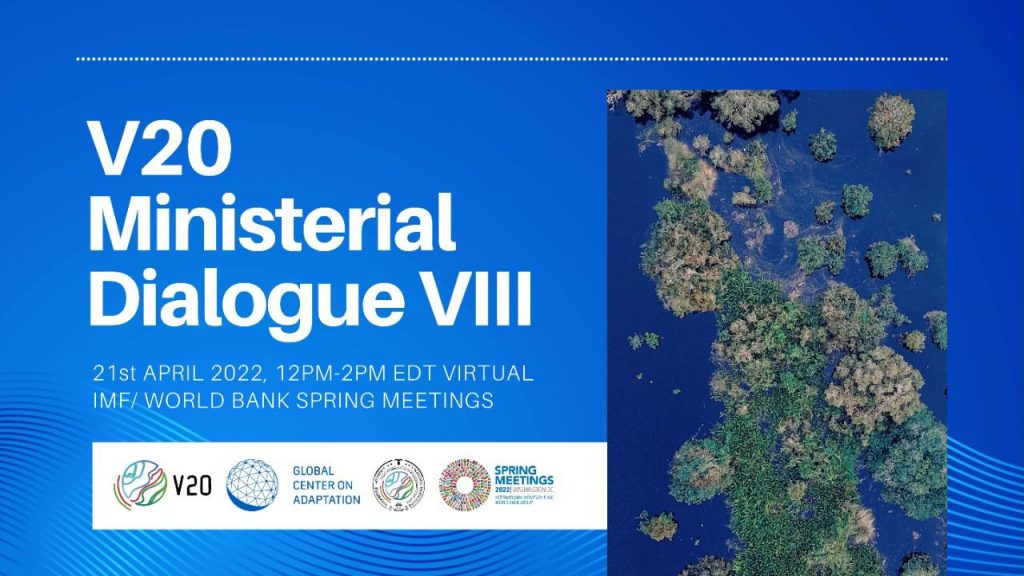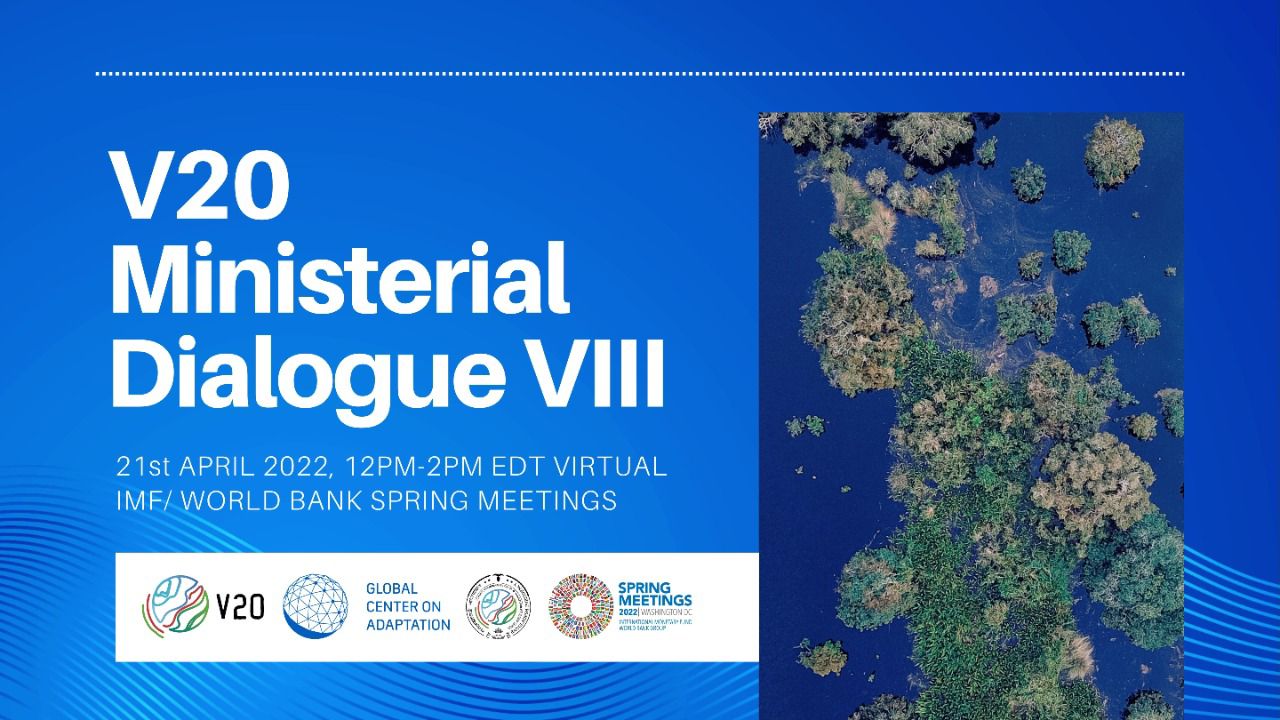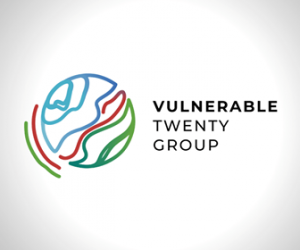Statement delivered by Ms. Mari Pangestu, Managing Director of Development Policy and Partnerships, the World Bank

V20 MINISTERIAL DIALOGUE VIII- 21 April, 2022
Statements
10:00 pm Dhaka time/12:00 pm Washington DC time
Statement delivered by Ms. Mari Pangestu, Managing Director of Development Policy and Partnerships, the World Bank
Ms. Mari Pangestu
Managing Director of Development Policy and Partnerships, the World Bank
Excellencies,
Ladies and Gentlemen,
I’m honored to join you today to offer our support to this group of finance ministers, who have faced more than two years of facing the impact of the covid crisis on public finances and public health, while at the same time, are experiencing an increase in the impact of conflict along with climate impacts. I don’t need to tell you the urgency of the challenge of climate change. Our research shows that climate change could push a 132 million more people into poverty over the next ten years, undoing hard earned development gains. Nor do I need to tell you that the world’s poorest countries are the most vulnerable to the impacts of climate change despite accounting for less than 1/10th of global greenhouse gas emissions. That’s why the World Bank Group today is the biggest multilateral funder of climate investments in developing countries. We delivered a record breaking 26 billion dollars in the last financial year and we will deliver even more this financial year.
Another priority is to support a small group of high emitters with a just, low carbon transition, halting new coal and decommissioning existing coal fired plants, which will be expensive but it needs to happen. At the same time, half of the bank’s climate change [finance] goes to support adaptation ranging from boosting flood resilience through sea walls along west Africa’s coasts to investing in resilient transport infrastructure in Samoa, Tonga, Tuvalu, and Vanuatu, so that when disasters strike, communities will be less likely to have experiencing transport disruptions or lose access to essential services. But adaptation is above more than public finance. At the World Bank Group, we have three major priorities that underpin our approach to supporting adaptation and resilience. First, with information and tools and data to help decision makers spend better by mainstreaming resilience and climate change in decisions and investments in a cost effective way. Investors and policymakers are also realizing the immense potential of new technologies for climate adaptation and are scaling up innovations across the most directly affected sectors, from infrastructure to agriculture. Second, through investment and mobilization of private capital to spend more on physical resilience and adaptation. And finally, supporting policies and systems to boost social and financial resilience to cope with and recover from impacts that we can’t prevent.
And all of this needs to happen at a time when total debt in developing economies is now at a 50 year high. Among the poorest countries, nearly 60% are already in debt distress or at a high risk of it. There’s no question about the scale of the financing challenge that would be needed, but adaptation and development are linked. Good adaptation can deliver good development outcomes and securing good development requires effective adaptation actions.
You can count on us to help you build resilience across physical, social, and financial systems in your countries. And we hope we can count on you to support innovative approaches at the frontlines of development. It is together that we can win the battles against the multiple crises, we are facing. Thank you.
[END]




